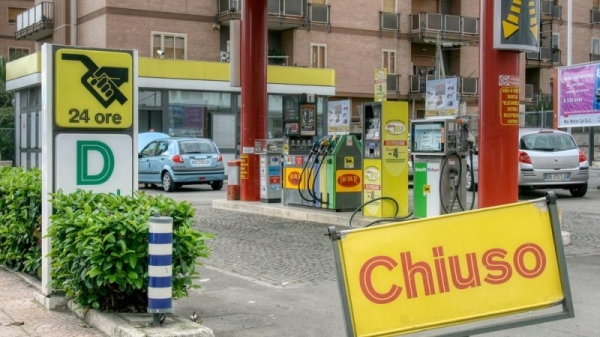Italy rejects ‘ideological’ EU ban on combustion engines

Italy says no to the EU regulation banning internal combustion vehicles by 2035 unless the EU Commission revises its position and proposes environmentally and economically sustainable alternatives.
After the Environment and Energy Security Ministry announced Italy’s negative vote on the proposed EU regulation, the Swedish EU presidency decided to postpone from Wednesday to Friday the planned vote at the meeting of the Deputy Permanent Representatives (Coreper I) on the sale stop of new petrol and diesel cars from 2035 .
“With our ‘No’ vote we have woken up Europe. We hope others will understand that it is time for reason, certainly not resignation. Change is possible,” Enterprise and Made in Italy Minister Adolfo Urso (FDI/ECR) commented on Twitter.
Urso supports the Swedish presidency’s choice, which will allow for a “more meaningful reflection” on the issue in light of the events that have turned Europe upside down: first the pandemic and, later, the war in Ukraine.
Italy’s condition in order to untie the knot and say ‘Yes’ to the new measures is for the European Commission to provide “common sense” alternatives to achieve the EU’s environmental sustainability goals, shared by the Italian government led by Giorgia Meloni (FDI/ECR).
“We must not bind ourselves to a single technology, there must be a choice”, MP Luca Squeri, energy manager for Forza Italia (EPP), told EURACTIV Italy.

Too little, too late on combustion engines
Politicians and MEPs have strongly criticised Brussels for a ban on petrol and diesel cars from 2035. Despite the rhetoric, it is now almost unthinkable that the deal will be overturned.
E-fuels step in?
On Tuesday, German Transport Minister Volker Wissing (Fdp/Renew) said Germany would accept the agreement only if the Commission comes up with a proposal to allow internal combustion engine vehicles powered exclusively by e-fuels to be registered after 2035.
“E-fuels are also absolutely usable as an innovative source of mobility. If Berlin’s proposal is accepted, Italy will also give the green light”, Squeri explained. “If we manage to have a blocking minority, we could make common sense prevail and defeat an ideology that is doing damage to Italy and the whole of Europe.”
The EU regulation in question is part of the Fit for 55 climate package, which aims to achieve zero CO2 emissions by 2035, and is in its final legislative passage. During the last plenary session of the European Parliament, the text had been approved following negotiations. The final vote for ratification is scheduled for Tuesday (March 7).

Germany vows to abstain on car CO2 limits vote without e-fuel commitment
Major car-producing nations are proving increasingly reluctant to accept Brussels’ legislative proposals to rein in emissions from road transport, worried about the economic toll on car producers and consumers alike.
Italy’s negative vote would not affect the approval of the regulation at Coreper, as only a qualified majority would suffice, but given Berlin’s doubts, Bulgaria’s abstention and Poland’s ‘no’ vote, the game is wide open.
“Our taking such a clear and sharp stance, together with that of other countries such as Poland and Bulgaria, has prompted further reflection,” Urso added, stressing that, from a broader perspective, solutions need to be found to respond to the “great systemic challenge of China and the assertive policy of the United States”.
More pragmatism not to give in to China
Meloni government ministers are concerned that the EU’s choices could benefit China by establishing a further toxic link of technological dependence just as the process of Eu member states to cease their energy dependence on Russia is underway.
“We need to convince the European institutions to act with more pragmatism, according to a vision more in line with reality, to the challenge of ecological and industrial transition”, Urso said, stressing that it is crucial “not to move from energy subordination to Russia to an even worse subordination to Chinese technology”.
Transport Minister Matteo Salvini also said the ban imposed by the EU in these terms is “a folly that does not help the environment and enriches China”.
“The transition we all believe in should be encouraged and accompanied but rushing risks having the opposite effect”, Salvini said during the Informal Council of EU Transport Ministers, organised by the Swedish Presidency in Stockholm.
“I am convinced that the next European Commission will call into question many ideological axioms taken in this legislature”, Urso added, stressing that at the moment there prevails “a very ideological view on technology, which we contest because we are for technological neutrality”.
“By setting an emissions reduction target of 100% in 2035 and providing no incentive for the use of renewable fuels, the regulation is not in line with the principle of technology neutrality. Therefore, Italy cannot support it”, reads the national statement sent to the Representatives of the 27 in the EU.
(Federica Pascale | EURACTIV.it)



